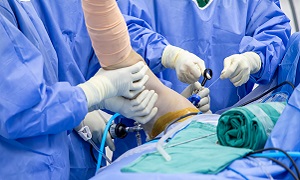Best Doctors in India for Dislocated Shoulder Treatment
Best Hospitals in India for Dislocated Shoulder Treatment
- City: Bengaluru, India
Hospital Highlights:
- Fortis Hospital Bannerghatta, Bengaluru was established in 2006.
- The hospital is a 276 bedded multi-specialty tertiary care facility.
- The hospital specializes in cutting-edge medical technology and dedicated patient care services.
- The hospital is equipped with state-of-the-art technologies like trans-radial angioplasty, trans-abdominal cardiac surgery, and computerized TKR navigation surgery.
- The hospital provides specialty medical services in cardiology, cardiac surgery, orthopedics, neurology, neuro-surgery, GI, and Minimal Access Surgery (MAS).
- City: Chennai, India
Hospital Highlights:
- Fortis Malar was established in 1992 and was formerly known as Malar Hospital.
- The hospital specializes in cutting-edge medical technology and dedicated patient care services.
- The hospital is multi-specialty, tertiary care facility with 180 beds.
- The hospital offers comprehensive medical care in specialties such as cardiology, cardio-thoracic surgery, neurology, neurosurgery, orthopedics, nephrology, gynecology, gastroenterology, urology, pediatrics, and diabetes.
- City: New Delhi, India
Hospital Highlights:
- Established in 1996, Pushpawati Singhania Research Institute is one of the top hospitals in the NCR region, as well as one of the top facilities in India for gastroenterology. The hospital is one of South Asia’s first institutes in medical and surgical treatment for diseases related to digestion.
- The hospital is equipped with state-of-the art facilities coupled with the latest equipment as well as renowned consultants from various parts of India as well as other parts of the world.
- City: New Delhi, India
Hospital Highlights:
- State-of-the-art technology and devoted healthcare professionals have been brought together under one roof at Venkateshwar Hospital to provide genuine medical care. The hospital’s professionals work together as a team to deliver the best possible treatment to their patients, using the most sophisticated equipment and information technology.
- Venkateshwar Hospital’s mission is to attain global excellence in healthcare by employing evidence-based, ethical clinical practices and cutting-edge technology by a team of highly skilled experts.
- City: New Delhi, India
Hospital Highlights:
- Sir Ganga Ram Hospital, New Delhi is known to provide the latest medical procedures with the latest technology in all of its units.
- The hospital has a team of reputed doctors, nurses, and healthcare professionals that ensure that patients receive quality care at affordable costs.
- Staffed with a team of highly qualified doctors, dedicated nurses, and paramedical and non-medical staff, the hospital aims to lead in healthcare delivery, medical education, training, and research.
- As per the vision of the founder, the hospital also provides free treatment to the economically weaker sections of society.
- Sir Ganga Ram Hospital also provides training to young doctors under the Diplomate in National Board(DNB) program. The DNB program at the hospital was started in 1984 and it is known for currently running the maximum number of DNB specialties in the country. It also has the distinction of having the first bone bank in India.
- City: Kerala, India
Hospital Highlights:
- Established in 2019, Apollo Adlux Hospital is the first Apollo Hospital in Kerala and the 73rd hospital owned by Apollo Group in India. With the state’s most advanced, comprehensive healthcare infrastructure and cutting-edge technologies, Apollo Adlux Hospital stands as an example of medical excellence in Kerala.
- With over 34 multi-specialty departments, the hospital believes in providing the best quality treatment to its patients at affordable rates, ensuring comfort at their difficult times.
- The 300-bed hospital is managed by a team of highly qualified and experienced experts who delivers exceptional hospitality to their patients and treats them with great compassion.
- With its affiliation with the Apollo Hospitals Group, the hospital aims in providing patients with top-notch healthcare services while also serving communities in Kerala.
- The hospital has good railway and road connections, and is conveniently close to Cochin International Airport.
- City: Gurugram, India
Hospital Highlights:
- Situated near DLF Cyber City, Gurugram, Narayana Superspecialty Hospital is one of the top medical facilities in the Delhi NCR region, catering to the needs of the people. Known for its commitment to quality medical care and patient service, the hospital is a state-of-the-art facility with planned and well-equipped sections, which includes a spacious OPD area as well as comfortable patient rooms.
- It is the closest super-specialty hospital from Indira Gandhi International Airport towards Gurugram, and also the nearest super specialty hospital from DLF Cyber City. It is also close to major residential areas in Gurugram.
- It is part of the renowned Narayana Health Group. Established in 2000, by Dr. Devi Shetty, a renowned cardiac surgeon, it has grown to be one fo India’s leading healthcare groups.
- City: Noida, India
Hospital Highlights:
- Fortis Hospital, Noida, stands as one of the oldest and most trusted healthcare institutions in the region, setting a benchmark for comprehensive medical care.
- As the second mega hub hospital in the Fortis Healthcare Group, Fortis Hospital, Noida, upholds a legacy of trust among more than 1.2 million patients. By integrating top-tier professionals with cutting-edge technology, the hospital delivers superior treatment across various medical disciplines.
- Specializing in advanced Neurosciences, Orthopedics, Kidney and Liver Transplant Programmes, Fortis Hospital, Noida has successfully performed over 1,500 transplants, solidifying its reputation as a leader in specialized medical interventions.
Dislocated Shoulder
Dislocated shoulder is an injury in which the upper arm bone pops out of the cup-shaped socket which is a part of your shoulder blade. Your shoulder is the most mobile joint in the body, and it allows the arm to move in multiple directions. Due to this ability to move, the shoulder is not only unstable but also the most dislocated joint in the body.
Shoulder dislocations occur when the head of the humerus is removed forcibly from the socket in the glenoid fossa. The shoulder can get dislocated in several different directions, and a dislocated shoulder is described by the location, where the humeral head ends up after it gets dislocated.
Dislocations in younger people generally arise from trauma, which is usually associated with sports such as football or basketball. When it comes to older people, they are prone to dislocations due to the gradual weakening of the ligaments and cartilage that supports the shoulder. Even in such cases, some force needs to be applied to the shoulder joint to make it dislocated.
If you suspect a dislocated shoulder, it is important to seek prompt medical attention.
Symptoms
A dislocated shoulder generally shows the following signs and symptoms:
- A visibly deformed or out-of-place shoulder
- Intense pain
- Inability to move the joint
- Swelling
- Bruising
Sometimes, the dislocation might also cause numbness, weakness, or tingling near the injury, such as in your neck or down your arm.
If you suspect a shoulder dislocation, see a doctor right away. While you are waiting for medical attention, please note the following points:
Don’t move the joint – Splint or sling the shoulder joint in its current position and remember not to try to move the shoulder or force it back into its place. This can cause damage to the shoulder joint as well as its surrounding muscles, ligaments, nerves, or blood vessels.
Ice the injured joint – You can choose to apply ice to your shoulder as this can help you to reduce pain and swelling as it controls any internal bleeding and the buildup of fluids in and around your shoulder joint.
Causes & risk factors
The shoulder joint is known to be the most frequently dislocated joint in the human body and since it moves in several directions, your shoulder can get dislocated downward, forward, backward, completely, or partially. However, most dislocations are known to occur through the front of the shoulder.
A strong force, such as a sudden blow to your shoulder, is required, to pull the bones out of their place. In some cases, extreme rotation of your shoulder joint can also pop the ball of your upper arm bone out of your shoulder socket.
In most cases, a dislocated shoulder is caused by sports injuries. A hard blow to your shoulder during a motor vehicle accident is also a common cause. You may also dislocate your shoulder during a fall, such as from a ladder.
Diagnosis
When a patient shows signs of a shoulder dislocation; pain control, and joint relocation are the primary considerations. However, at the same time, your doctor needs to understand the mechanism of injury and the circumstances surrounding it. It is important to know if this is the first shoulder dislocation or whether the joint has suffered injury previously. In addition, your doctor might ask a few questions about medications, allergies, the time of the last meal, as well as your past medical history.
Physical examination of the shoulder will be required, and it will begin with an inspection. Plain X-rays are also most likely going to be required, to confirm the diagnosis of shoulder dislocation, and to make certain there are no broken bones associated with this dislocation.
Treatment
If your shoulder dislocation is simple, without any major nerve or tissue damage, then the shoulder joint is likely going to improve over a few weeks. It is best not to resume activity too soon after your shoulder dislocation, as it might cause not only cause injury to your shoulder joint, but it may cause it to dislocate again.
If your shoulder dislocation is serious, the following treatments may follow:
Closed reduction
Your doctor is going to try certain gentle maneuvers which should likely help your shoulder bones get back into their correct position. Depending on the amount of pain and swelling, you may also require a muscle relaxant or sedative or, in rare cases, a general anesthetic before manipulation of your shoulder bones. When your shoulder bones are back in their place, the pain should go almost immediately.
Medication
Surgery
Immobilization
A special splint or sling might be used for some days to keep your shoulder from moving. How long you will need to wear the splint or sling will depend on the nature of your shoulder dislocation and how soon the splint is applied after your dislocation.
Rehabilitation
After your shoulder splint or sling is removed, you’ll need to start a gradual rehabilitation program which is designed to restore range of motion, as well as strength and stability to your shoulder joint.











